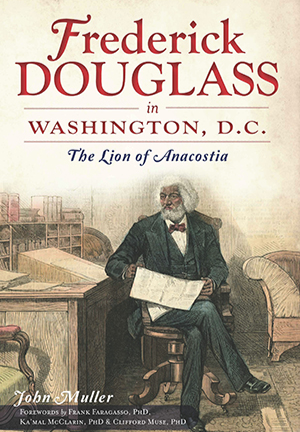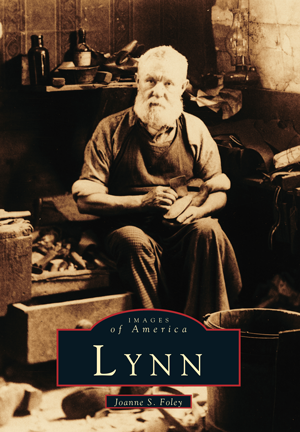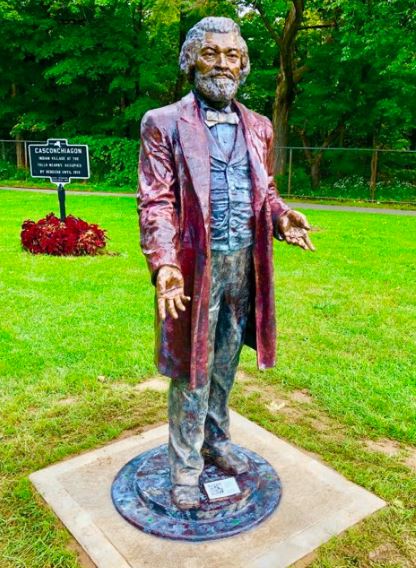
In 2018 the Frederick Douglass Bicentennial Commemoration placed 13 statues around the city of Rochester, NY to commemorate Frederick Douglass’s 200th birthday. On the anniversary of one of his famous speeches, one of those 13 statues was torn down. On July 16, 2020, the community came together and replaced the destroyed statue in Maplewood Park.
In the 1840s, the Rochester region matched New England in its zeal to end slavery. It was conveniently located along the Erie Canal and railroads, mid-way between New England and the Midwest for Frederick Douglass’s lecture tours, which is one of the reasons the Douglass family moved there in 1848.
Douglass and his wife, Anna, made their home in Rochester for 25 years. It’s where they raised a family, where Douglass published his abolitionist newsletter, The North Star, and where their home was a haven for slaves on the Underground Railroad.
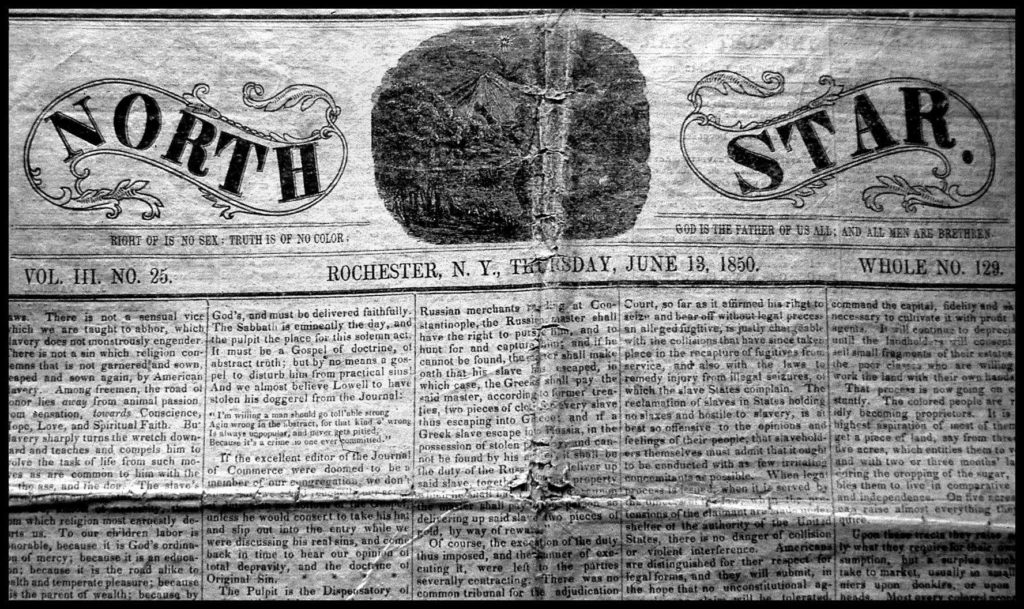
While in Rochester, Douglass also became active in the Western Anti -Slavery Society where he met the abolitionists and women’s rights activists Elizabeth Cady Stanton and Lucretia Mott. On July 19th 1848, Douglass spoke at the Seneca Falls Convention in nearby Seneca Falls NY. In an issue of the North Star published shortly after the convention, Douglass wrote:
“In respect to political rights, we hold woman to be justly entitled to all we claim for man. We go farther, and express our conviction that all political rights which it is expedient for man to exercise, it is equally so for women. All that distinguishes man as an intelligent and accountable being, is equally true of woman; and if that government is only just which governs by the free consent of the governed, there can be no reason in the world for denying to woman the exercise of the elective franchise, or a hand in making and administering the laws of the land. Our doctrine is, that ‘Right is of no sex.”
Related: Behind The Scenes at The Seneca Falls Convention
Douglass was the only African American to attend the Seneca Falls Convention. On August 2nd, a few weeks after Seneca Falls, Douglass spoke in favor of women’s rights at the larger Women’s Rights Convention of Rochester.
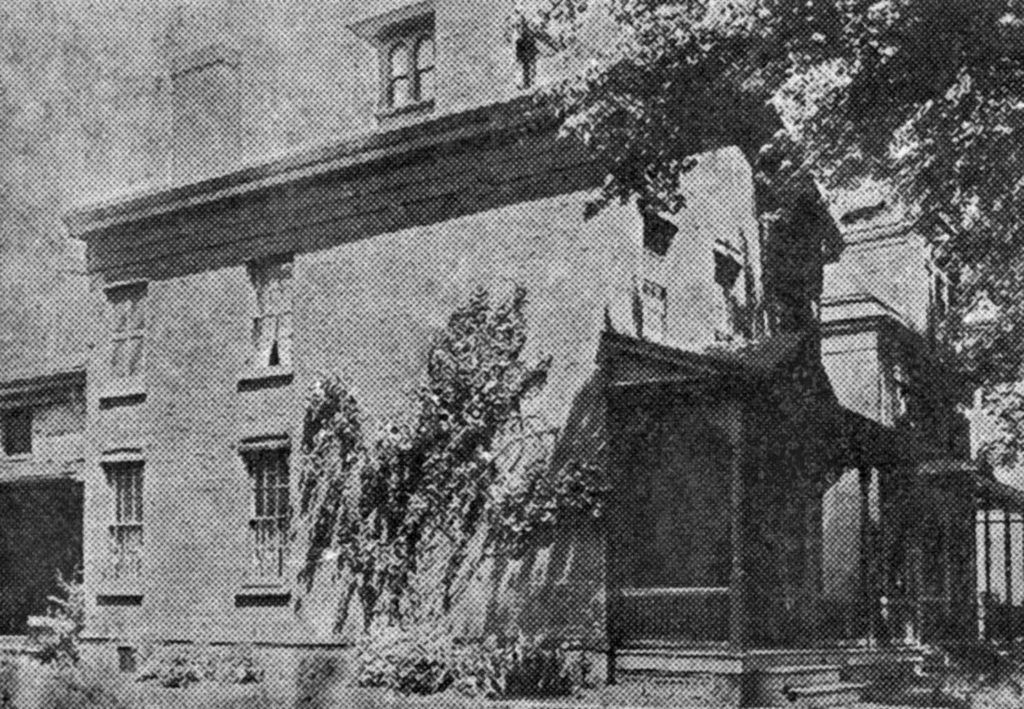
Read more about Frederick Douglass’s life in Rochester
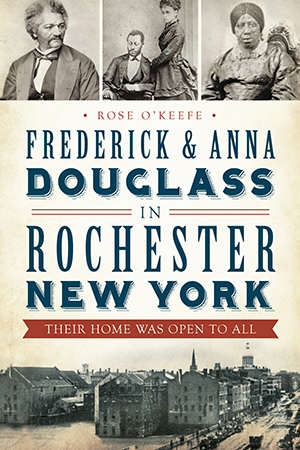
Despite living through one of our nation’s most bitter and terrifying times, Frederick and his wife, Anna, raised five children in a loving home with flower, fruit and vegetable gardens. While Frederick traveled widely, fighting for the freedom and rights of his brethren, Anna cared for their home and their family and extended circle. Their house was open to fugitives on the Underground Railroad, visiting abolitionists and house guests who stayed for weeks, months and years at a time. You can check out this book here!
Check Out Books On The Other Residences Of Frederick Douglass
You can find these titles at arcadiapublishing.com!


